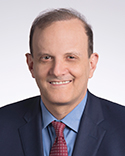THE SILENCE BREAKERS

Jonathan Segal
Movie stars are supposedly nothing like you and me. They're svelte, glamorous, self-possessed. They wear dresses we can't afford and live in houses we can only dream of. Yet it turns out that—in the most painful and personal ways—movie stars are more like you and me than we ever knew.
In 1997, just before Ashley Judd's career took off, she was invited to a meeting with Harvey Weinstein, head of the starmaking studio Miramax, at a Beverly Hills hotel. Astounded and offended by Weinstein's attempt to coerce her into bed, Judd managed to escape. But instead of keeping quiet about the kind of encounter that could easily shame a woman into silence, she began spreading the word. …
Even now, the contours of what constitutes sexual harassment remain murky. Some of the recent stories clearly cross the line, like a boss exposing himself to a subordinate or requiring that his researcher sit on his lap. But others feel more ambiguous. Under what circumstances can you ask a colleague about their marriage? When is an invite to drinks alone a bridge too far?
Jonathan Segal, a partner at the Philadelphia law firm Duane Morris, who specializes in workplace training, says he hears that confusion in the conversations men are now having among themselves. "It's more like, 'I wonder if I should tell someone they look nice, I wonder when it's O.K. to give a hug, I wonder when I should be alone with someone in a room,'" he says.
This uncertainty can be corrosive. While everyone wants to smoke out the serial predators and rapists, there is a risk that the net may be cast too far. What happens when someone who makes a sexist joke winds up lumped into the same bucket as a boss who gropes an employee? Neither should be encouraged, but nor should they be equated.
Companies, meanwhile, are scrambling to keep up. Most large U.S.-based corporations now have fairly complete policies on sexual harassment, and many have anti–sexual harassment training programs and claim to be "zero-tolerance workplaces." A 2016 EEOC report found that a company's willingness to protect so-called rainmakers—high-performing men like Kalanick, Weinstein and O'Reilly—to be one of the most pernicious reasons C-suites and corporate boards overlooked harassment. It doesn't matter how good a company's policy is if its systems are ignored or don't work. "So much harassment training is like an episode of The Office," says Victoria Lipnic, the acting chair of the EEOC. …
To read the full text of this article, please visit the TIME website.







